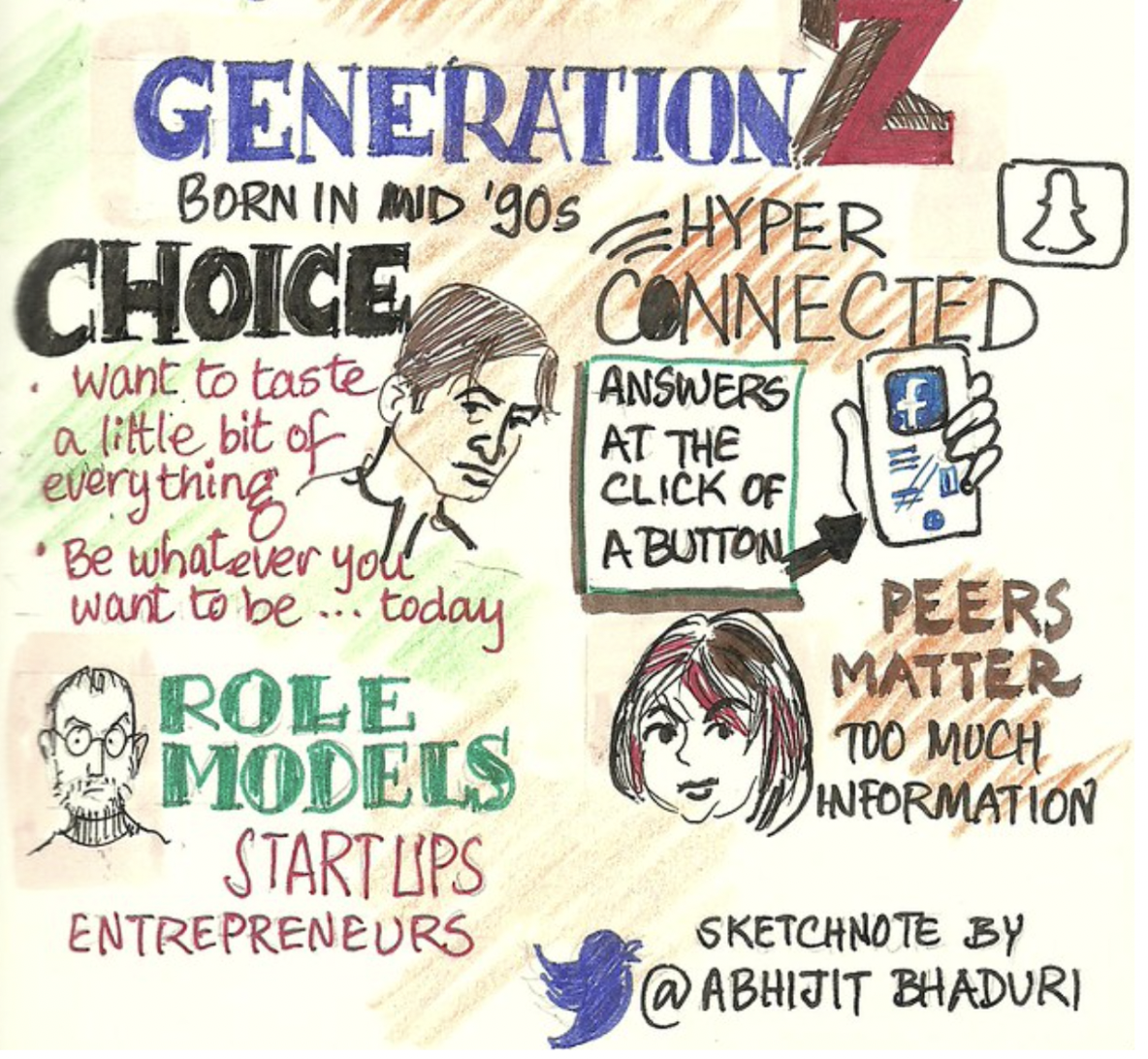Almost every teenager has heard the condescending and exaggerated stories that begin with “when I was your age…” repeated thousands of times by their parents, aunts, uncles and grandparents. “When I was your age, I walked 10 miles to school daily.” “When I was your age, I ran to my friend’s house just to talk to them.” “When I was your age, I was already working and making my own money.”
My grandma used to recite these phrases to me. Often taken as lazy, unappreciative and immature, many of Generation Z’s fresh views and new lifestyles have been met with distaste and ignorance by older generations. These quips are often aimed at undermining the competence of our generation.
When I type the words “Why Gen Z?” in a computer browser, the suggestions that appear include “Why Gen Z is so soft?” or “Why Gen Z doesn’t want to work?” The negative connotations toward Gen Z seem to be a running pattern among these questions, from negative personality traits to a lack of drive in the workforce.
Born between 1997 and 2012, Gen Z make up over 30% of the global population, and by 2025, they are expected to make up 27% of the workforce, according to Forum. It’s 2024; millennials have grown up and it’s Gen Z’s turn to take the brunt of hate and criticism. But where does this hate and criticism stem from?
As a teenager, I have experienced and witnessed far too many instances where young people like me have been misunderstood and looked down upon. The stereotypes tied to this generation, such as being tech-obsessed, sensitive and privileged, have understandable origins, but that doesn’t mean people should tie every teenager’s behavior to the few assumptions Generation X or boomers have of Gen Z.
As young adults, our understanding of the world compared to previous generations is tremendously different, mainly due to social media. Since 93% of Gen Z has social media, more than any other generation, information circulates astronomically faster. The belief is that social media has largely influenced Gen Z’s views in a negative rather than positive manner, and has created a false sense of reality, continuously shielding us from serious matters. Studies show more than 1 in 3 adults think social media is harmful.
However, regarding the network of interconnections established by social media, the power of spreading information is unmatched, and it has played a huge role in Gen Z’s perception of the world. A survey by Statista reported 50% of Gen Z news consumers use social media as their daily news source.
With social media, misinformation and propaganda have a new medium for growth, but so does the truth. The uncovering and revealing of misinformation can reach teens with a simple scroll through Instagram Reels or TikTok, through brief videos. Moreover, according to a Pew Research Center Survey, 8 in 10 Americans think social media is very or somewhat effective at raising awareness for social or political issues and would use it as a platform for activism.
The freedom ordinary people have on these platforms can mean that the news most people hear regarding reports of human rights abuses and social movements in another continent doesn’t have to be utterly influenced by powerful forces like the government or huge media outlets. Contrary to the misconception of Gen Z being privileged and babied, the reality is that Gen Z has always had the real world in front of their eyes.
Aside from social media usage, Gen Z has been called “generation snowflake” by millennials and Gen X, implying Gen Z is overly sensitive and too whiny. Some call it sensitivity, but becoming increasingly culturally and socially aware is nothing but a strength of this generation.
Indeed, phones, computers and other electronic devices developed in the 21st century have been dominating the lives of many. However, to generalize and confine this entire group to being “lazy screen addicts” who game and scroll on TikTok until 2 a.m. instead of finishing homework would be a flawed statement and an insult to everything else Gen Z has to offer.
Many youth striving for social justice, diversity, environmental change or anything of the sort have been particularly disparaged by conservative thinkers of older generations. Greta Thunberg, a 21-year-old environmental activist, is just one example of a youth leader making change on a broad scope, yet who is not taken seriously by older generations. To go against abortion, protest against gun control and speak out for racial justice are just a few examples of movements that have either angered certain Republican voters or been dismissed by conservative parents.
What’s often forgotten is that these so-called flaws that others have assigned to Gen Z can be turned into strengths. This generation’s size, increased social media presence, and familiarity with technology can be used to our advantage to engage in activism, innovation, and progress on a massive scale. Gen Z has already begun using technology for various purposes, including protest and creative expression.
Instead of showering Gen Z with criticism based on outdated practices and ignorant assumptions, consider shifting perspectives to see the possibility of Gen Z bringing something new and genuinely valuable to the world.



































































